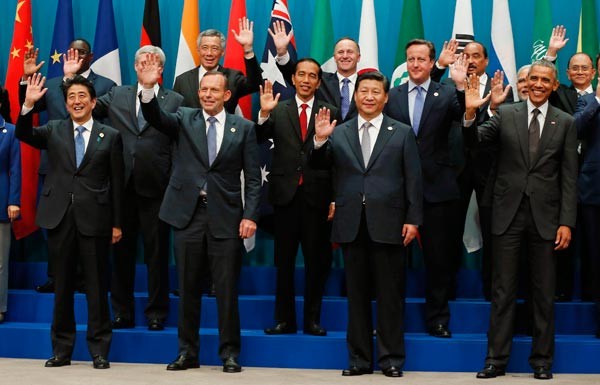China will be hosting the Group of Twenty (G20) Summit in 2016, said Xinhua. In light of this, President Xi Jinping said that he is confident that China will be able to fulfill its role both as the chair of the 2016 G20 summit as well as a member of the three-member management "Troika" for 2015 and 2017.
Australian Prime Minister Tony Abbott made the formal announcement on Sunday in Brisbane that China will be the next host of the G20 summit.
The G20, unlike other international organizations, operates without a permanent secretariat or staff of its own. The group's chair annually rotates among the members and is selected from a different regional grouping of countries. The chair is part of a revolving three-member management group of past, present and future chairs, referred to as the "Troika."
The incumbent G20 chair establishes a temporary secretariat for the duration of its term and coordinates the group's work and organizes its meetings. The current chair of the G20 is Australia, after the position was handed over from Russia following the 2013 G20 summit.
The role of the Troika is to ensure continuity in the G20's work and management across host years. The G20 management Troika now consists of Turkey (present chair), Australia (past chair) and China (future chair).
The coming two years will be an important period in the evolution of the G20, according to He Fan, a deputy director of the Institute of World Economics and Politics, Chinese Academy of Social Sciences.
Writing for the BRICS Post, he said: "If and when China assumes the presidency, it should seek to strike a fine balance between the developed and developing countries, granting a credibility to the G20 it badly needs." The legitimacy of the G20, Fan noted, is declining, with people increasingly getting cynical as to what the forums can actually achieve.
The 2014 G20 summit in Brisbane concluded with the leaders of the world's top 20 economies pledging to raise their collective economic output by an extra 2.1 percent over the next five years.



























